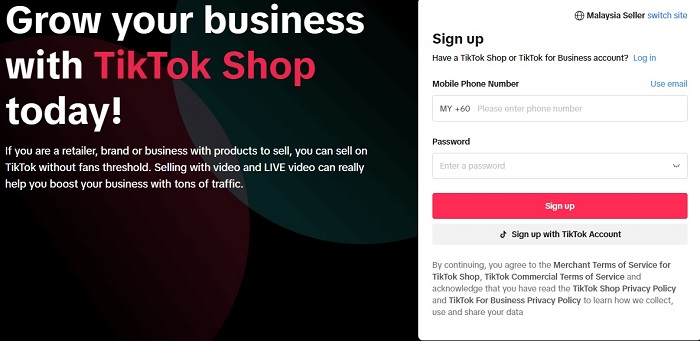- Ensure local businesses, products, enablers prioritised over foreign players
- Craft policies that are both equitable and beneficial for all stakeholders involved

 The National Tech Association of Malaysia (PIKOM) and e-Commerce Malaysia, a chapter of Pikom, welcomes the recent announcement by Communications and Digital Minister Fahmi Fadzil that the government does not intend to block or close social media and other related platforms, including TikTok’s marketplace in Malaysia, TikTok Shop when he spoke to the press on 1st Dec.
The National Tech Association of Malaysia (PIKOM) and e-Commerce Malaysia, a chapter of Pikom, welcomes the recent announcement by Communications and Digital Minister Fahmi Fadzil that the government does not intend to block or close social media and other related platforms, including TikTok’s marketplace in Malaysia, TikTok Shop when he spoke to the press on 1st Dec.
Taking note that the Malaysian Communications and Multimedia Commission (MCMC) is developing a comprehensive framework to register and regulate social media and other related platforms within the country, Pikom believes that such policies should be formulated in collaboration with industry. This is to ensure that upcoming regulations do not stifle innovation and encourage businesses and the rakyat to embrace the benefits of being actively involved in Malaysia’s thriving Digital Economy.
Pikom views the framework, which Fahmi said would be ready within a month, as a significant step towards further nurturing the continued growth of the country’s Digital Economy.
Our previous engagements with both government bodies and private sector players have consistently advocated for a collaborative approach between both sides, particularly in areas affecting the digital marketplace and e-commerce landscape. The upcoming framework aligns with this vision, presenting an opportunity to craft policies that are both equitable and beneficial for all stakeholders involved.
PIKOM and e-Commerce Malaysia reiterate that such regulations should also ensure that local businesses, products and enablers are prioritised over foreign players, thereby fostering a digital marketplace landscape whereby Malaysian enterprises can continuously thrive while maintaining competitive fairness.
Other countries such as Australia and Indonesia have already implemented comprehensive policies to govern and regulate social media platforms, designed to ensure amongst others, a balanced approach whereby free speech flourishes without being undermined by the spread of fake news.
Pikom is optimistic that the MCMC will take measures to prevent the dumping of foreign goods in Malaysia, ensuring that the digital marketplace remains conducive for locally-owned enterprises. This is not only a matter of economic policy but also of national interest and pride.
In line with this, Pikom and e-Commerce Malaysia firmly believe that businesses participating in e-commerce activities within our borders should work actively with locally-owned players. This stance is to ensure that the benefits of digital trade accrue primarily to Malaysian entrepreneurs and not to foreign companies selling cross-border.
Our recommendations, as previously outlined, remain relevant and pressing:
- Active engagement of TikTok Shop and other similar social commerce entities with local communities and industry associations for policy formation.
- Prioritisation of capacity building for local players in the digital market.
- Strategic partnerships for community investment in local talent and SMEs.
- Ensuring local brands and enablers are prioritised in consumer traffic.
We support MCMC to consider these elements in their framework to create a digital ecosystem that is equitable, sustainable and reflective of Malaysia’s unique market dynamics.
Ganesh Kumar Bangah is Advisor to Pikom and Chair of e-Commerce Malaysia, a chapter of Pikom

